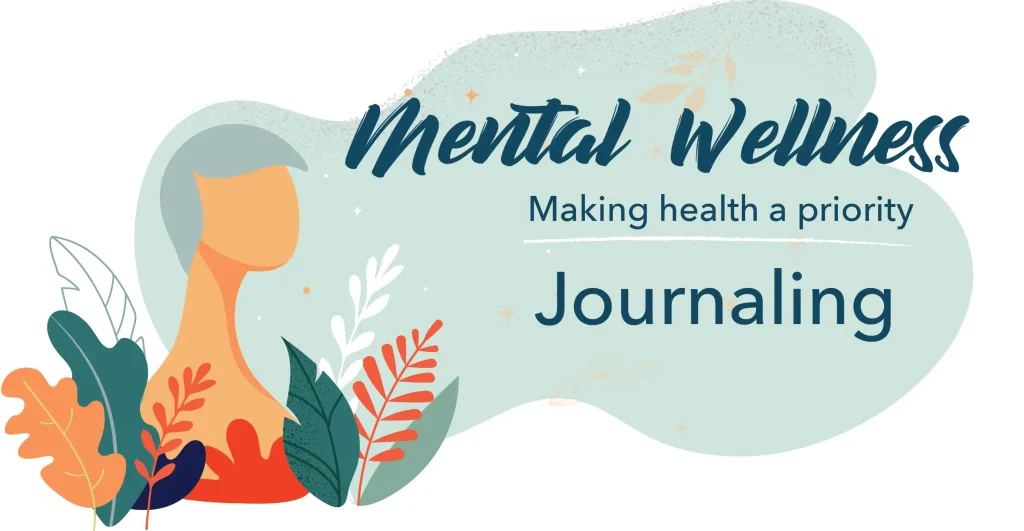Addressing Mental Disabilities: Journaling

When life writes on my page, I also write. When troubles speak, I also speak and this time round I ensure that I’m louder and clear. I don’t permit my pain and tears to enjoy the monopoly of writing in my life.
I am the one fully in Charge of my life with full mandate to determine what lodges in my heart, what tarries there what is dismissed and what is entertained for long. Life writes war, emptiness, guilty, grief, hatred and such like stuff. I’ve mastered the art of writing hope, love, mercy, comfort, victory and success in my innermost diary. Journaling helps me do this without judgement and strain. I take a catalogue of my emotions, thoughts and behaviors without judgement. Then I use this to do a mental check up on myself. At this point I decide what to keep and what to discard.
This is how journaling empowers you to rule and dictate the value of life you live. Join me as we journey through journaling for liberty! RTT got your hand every step until you attain your happiness, fulfilment and purpose in life.
Journaling?
Journaling is defined as the act of keeping a journal or diary where you record your thoughts, feelings, and experiences. Journaling has long been recognized as an effective way to reduce stress, help with depression and anxiety, focus your mind, and organize your life. It can be a great tool to use for meditation, to open up, and let go of anxious thoughts that bother you, in a healthy way. Journaling for mental wellness is a powerful tool for self-reflection, emotional expression, and stress management. Here are some ways journaling can enhance mental wellness:
- Emotional Release: Writing down your thoughts and feelings helps you process emotions, release pent-up stress, and gain clarity about your experiences.
- Self-Reflection: This is the onset of self awareness. Journaling allows you to reflect on your actions, thoughts, and patterns, leading to greater self-awareness and personal growth.
- Stress Reduction: By expressing worries, fears, or concerns on paper, you can reduce anxiety and create a sense of relief and calm.
- Goal Setting and Motivation: Use journaling to set personal goals, track progress, and stay motivated. It provides a space to plan and reflect on your journey toward achieving your aspirations.
- Cognitive Restructuring: Journaling can help challenge and change negative thought patterns by encouraging a more balanced and positive perspective.
- Gratitude Practice: Keeping a gratitude journal can boost mood and overall mental well-being by focusing on positive experiences and what you’re thankful for.
- Problem Solving: Writing about challenges and brainstorming solutions can help you see situations more clearly and develop effective coping strategies.
- Mindfulness and Presence: Journaling encourages mindfulness by bringing attention to the present moment and fostering a deeper connection with yourself.
By making journaling a regular part of your routine, you can enhance your mental wellness and foster a deeper understanding of yourself.

Indicators of Mental Disabilities
Below is a list of behaviours that indicate that one is psychologically struggling and need to take action. Remember, Journaling is not the only way out but one of the most proven tools for eradicating mental health disorders.
- Social Withdrawal: Avoiding friends, family, and social activities that were once enjoyed, often preferring isolation.
- Changes in Sleep Patterns: Experiencing insomnia, oversleeping, or having irregular sleep patterns.
- Significant Weight Fluctuations: Noticeable weight gain or loss due to changes in appetite, whether eating too much or too little.
- Mood Swings: Rapid or extreme changes in mood, such as going from happiness to sadness or anger without an apparent reason.
- Increased Irritability or Anger: Becoming easily frustrated, agitated, or angry over minor things that would not typically cause such reactions.
- Lack of Concentration: Difficulty focusing on tasks, making decisions, or remembering things. This may manifest in work, school, or daily activities.
- Neglecting Personal Hygiene or Appearance: A decline in taking care of oneself, such as not bathing, brushing teeth, or wearing clean clothes.
- Substance Abuse: Using drugs, alcohol, or other substances more frequently or excessively as a coping mechanism.
- Engaging in Risky Behaviours: Increased involvement in dangerous activities, such as reckless driving, unsafe sex, or criminal behaviour.
- Self-Harm: Engaging in behaviours like cutting, burning, or otherwise harming oneself as a way to cope with emotional pain.
- Excessive Crying: Frequent crying spells that are hard to control or are triggered by seemingly minor issues.
- Overwhelming Fatigue or Low Energy: Persistent tiredness, even after adequate rest, that affects one’s ability to carry out daily activities.
- Increased Anxiety or Worry: Excessive worry about various aspects of life, such as work, health, or social situations, which can be debilitating.
- Avoidance of Responsibilities: Neglecting or avoiding important responsibilities at work, school, or home. Chronic procrastination and fear of responsibilities.
- Decreased Interest in Hobbies or Activities: Loss of interest in activities or hobbies that were once enjoyable, often due to a lack of motivation or pleasure.
- Restlessness or Agitation: Constant fidgeting, pacing, or an inability to sit still, often accompanied by a sense of inner tension.
- Negative Self-Talk: Expressing frequent thoughts of self-criticism, worthlessness, or hopelessness.
- Paranoia or Suspiciousness: An increased sense of mistrust or feeling that others are out to harm or deceive, often without evidence.
- Difficulty in Relationships: Struggles in maintaining personal or professional relationships due to increased conflicts, misunderstandings, or withdrawal.
- Compulsive Behaviors: Repeated, uncontrollable behaviors like excessive cleaning, checking, or counting, often associated with anxiety or OCD. Addiction of any kind is a resounding alarm that something i getting out of control.
- Inability to Experience Pleasure (Anhedonia): A marked reduction in the ability to feel pleasure from activities that were previously enjoyed.
- Obsessive Thinking: Recurrent, unwanted thoughts that cause significant distress and may interfere with daily life.
- Physical Complaints: Frequent, unexplained physical symptoms like headaches, stomach aches, or muscle pain, often linked to stress or anxiety.
- Talking About Death or Suicide: Expressing thoughts about wanting to die, feeling like a burden, or making plans for suicide. This is a critical warning sign that requires immediate attention.
- Difficulty Handling Stress: Overreacting to minor stressors or feeling overwhelmed by daily tasks that were previously manageable.
Sources:
1. Smyth J, Johnson J, Auer B, Lehman E, Talamo G, Sciamanna C. Online Positive Affect Journaling in the Improvement of Mental Distress and Well-Being in General Medical Patients With Elevated Anxiety Symptoms: A Preliminary Randomized Controlled Trial. JMIR Ment Health. 2018;5(4):e11290. doi:10.2196/11290. https://www.ncbi.nlm.nih.gov/pmc/articles/PMC6305886/. Accessed April 3, 2022.
7. Tan T, Tan M, Lam C et al. Mindful gratitude journaling: psychological distress, quality of life and suffering in advanced cancer: a randomised controlled trial. BMJ Supportive & Palliative Care. 2021:bmjspcare-2021-003068. doi:10.1136/bmjspcare-2021-003068. https://spcare.bmj.com/content/early/2021/07/07/bmjspcare-2021-003068.abstract. Accessed April 3, 2022.


